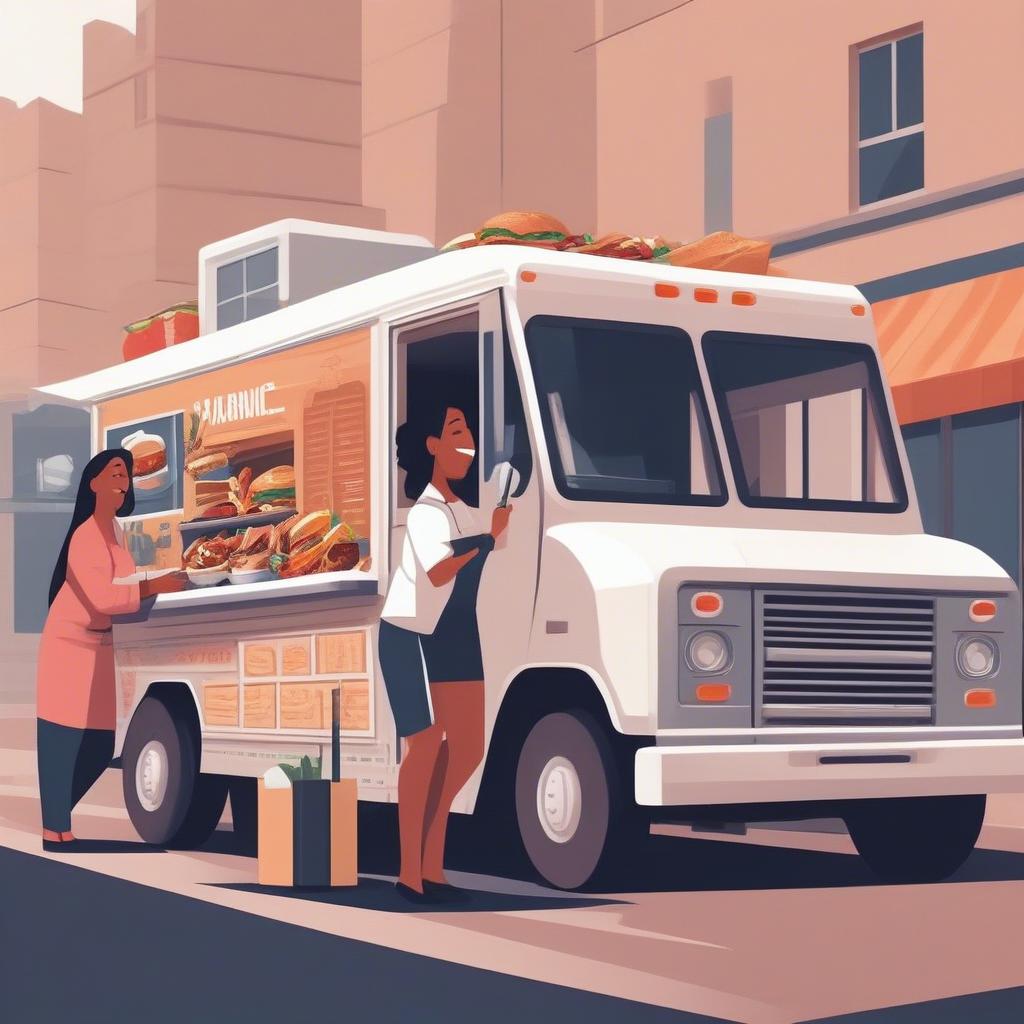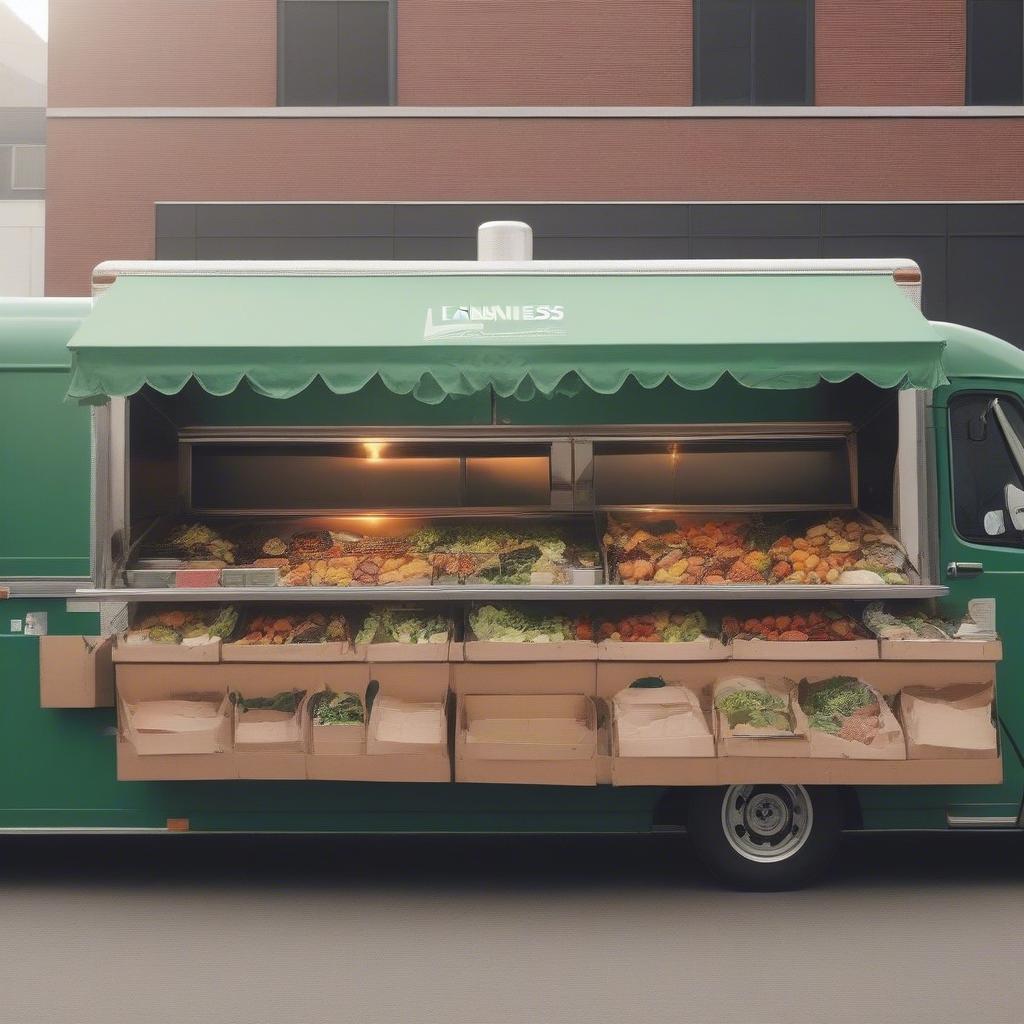
Running a successful food truck isn’t just about crafting delicious dishes; it’s about creating memorable experiences. And the linchpin of a positive customer experience? Exceptional customer service. For food truck staff, consistent, friendly, and efficient interaction is paramount. This article explores why customer service training is crucial for your mobile culinary venture, providing actionable strategies and training tips to elevate your business to new heights.
Why Customer Service Training Matters for Food Trucks
The Mobile Nature Demands Adaptability
Unlike brick-and-mortar establishments, food trucks operate in dynamic environments. Locations change, crowds fluctuate, and the flow of customers can be unpredictable. This requires food truck staff to be adaptable, able to handle pressure, and consistently provide top-tier customer service, regardless of the situation. Customer service training equips them with the skills to navigate these challenges smoothly.
First Impressions Are Everything
For many customers, the interaction with your food truck staff is their first impression of your brand. A positive and friendly greeting, a willingness to answer questions, and efficient order taking can set the stage for a delightful experience. Conversely, a rude, inattentive, or slow interaction can leave a lasting negative impression, deterring repeat business. Investing in customer service training ensures your staff always puts their best foot forward.
Building Customer Loyalty
In the competitive food truck landscape, building customer loyalty is vital. Exceptional customer service fosters connections and transforms one-time buyers into regular patrons. When customers feel valued and appreciated, they’re more likely to return and even recommend your food truck to others. Customer service training empowers your staff to create these loyal relationships.
Handling Complaints Effectively
No matter how impeccable your food or service is, complaints are inevitable. How your food truck staff handles these complaints can either escalate the situation or turn a dissatisfied customer into a loyal advocate. Customer service training provides staff with the conflict-resolution skills necessary to address complaints professionally, calmly, and efficiently, thus mitigating negative impacts and potentially even winning back upset customers.
Driving Word-of-Mouth Marketing
Positive customer service isn’t just about individual interactions; it’s a powerful marketing tool. Happy customers are more likely to share their experiences with friends, family, and on social media. This word-of-mouth marketing is invaluable for building brand awareness and attracting new customers. Customer service training ensures your team consistently generates positive buzz.
Increased Sales and Revenue
Ultimately, exceptional customer service translates to increased sales and revenue. Happy customers spend more, return more often, and spread the word. By investing in customer service training, you’re investing in the financial health and long-term success of your food truck business.
Core Elements of Effective Customer Service Training
Communication Skills
Effective communication is the cornerstone of exceptional customer service. Training tips should cover:
- Active Listening: Teaching staff to fully engage with customers, understand their needs, and address their concerns.
- Clear and Concise Language: Ensuring staff can communicate menu options, prices, and special offers in an understandable way.
- Non-Verbal Communication: Training on the importance of body language, eye contact, and facial expressions in conveying friendliness and approachability.
- Positive Language: Using positive phrases and words, even in challenging situations, to create a more pleasant experience.
Product Knowledge
Food truck staff must be knowledgeable about the menu. Training tips should include:
- Menu Item Familiarity: Training staff on ingredients, preparation methods, and flavor profiles of all menu items.
- Allergen Information: Ensuring staff is aware of all potential allergens and can provide accurate information to customers with dietary restrictions.
- Daily Specials and Promotions: Keeping staff up-to-date on daily specials, limited-time offers, and any changes to the menu.
- Up-selling and Cross-selling Techniques: Teaching staff how to suggest complementary items or larger portions to increase sales.
Handling Difficult Situations
Equipping staff with strategies for handling difficult customers and situations is essential:
- Conflict Resolution Techniques: Training on how to stay calm, listen empathetically, and find a resolution that satisfies both parties.
- De-escalation Strategies: Teaching how to identify escalating situations and use calming techniques to prevent things from getting out of hand.
- How to Apologize Sincerely: Training on the importance of offering sincere apologies, acknowledging mistakes, and taking responsibility.
- When to Seek Assistance: Knowing when to escalate a problem to a manager or owner.
Efficiency and Speed
In the fast-paced environment of a food truck, efficiency is key:
- Order Taking Procedures: Streamlining the order-taking process to minimize wait times and ensure accuracy.
- Food Preparation and Delivery: Implementing efficient systems for preparing and delivering orders quickly and accurately.
- Point-of-Sale (POS) System Usage: Training on how to use the POS system efficiently to handle transactions quickly and accurately.
- Multi-tasking Skills: Developing the ability to handle multiple tasks simultaneously without compromising on service quality.
Maintaining a Clean and Organized Environment
A clean and organized workspace contributes to a positive customer perception:
- Hygiene Practices: Emphasizing the importance of proper handwashing, food handling, and sanitization practices.
- Workstation Organization: Training on how to keep workstations tidy, stocked, and free from clutter.
- Maintaining a Clean Food Truck: Ensuring the interior and exterior of the food truck are always clean and presentable.
- Trash Management: Proper disposal of trash and keeping the area around the food truck clean and free from debris.
Practical Customer Service Training Tips for Food Truck Staff
1. Onboarding and Initial Training
- Create a Comprehensive Training Manual: Develop a manual covering all aspects of customer service, including policies, procedures, menu details, and FAQs.
- Shadowing: Have new staff shadow experienced team members to learn the ropes and observe best practices firsthand.
- Role-Playing: Use role-playing exercises to simulate real-life scenarios and provide opportunities for staff to practice their skills.
- Regular Quizzes and Assessments: Test staff’s knowledge and understanding of key concepts through regular quizzes and assessments.
2. Ongoing Training and Development
- Weekly Team Meetings: Hold weekly team meetings to discuss customer feedback, share best practices, and address any challenges.
- Monthly Skill-Based Training: Conduct monthly training sessions focused on specific customer service skills, such as communication, conflict resolution, or sales techniques.
- Guest Speakers: Invite guest speakers from the hospitality or customer service industry to provide fresh perspectives and insights.
- Continuous Feedback and Coaching: Provide ongoing feedback and coaching to staff to reinforce positive behaviors and address areas for improvement.
3. Utilizing Feedback
- Customer Feedback Forms: Provide feedback forms or online surveys to collect valuable insights from customers.
- Mystery Shoppers: Utilize mystery shoppers to provide an unbiased assessment of your staff’s customer service performance.
- Staff Feedback Sessions: Encourage staff to share their own feedback and suggestions on how to improve customer service.
- Analyzing Feedback: Carefully analyze all feedback data to identify trends and areas that require attention.
4. Empowering Your Staff
- Autonomy to Resolve Issues: Empower staff to make decisions and resolve minor issues without needing to seek manager approval.
- Recognize and Reward Excellence: Acknowledge and reward staff for providing exceptional customer service. This could be through employee of the month programs, gift cards, or public recognition.
- Foster a Positive Work Environment: Create a work environment where staff feel valued, respected, and supported. A happy team is more likely to provide excellent service.
- Encourage Teamwork: Emphasize the importance of teamwork and collaboration in delivering a seamless customer experience.
5. Leveraging Technology
- POS System: Use a POS system that is user-friendly, efficient, and can track sales data.
- Online Ordering Platforms: Offer online ordering options to improve convenience and streamline operations.
- Customer Relationship Management (CRM) System: Utilize a CRM system to manage customer data, track preferences, and personalize interactions.
- Social Media Monitoring Tools: Use social media monitoring tools to track customer feedback and respond to inquiries in a timely manner.
Sample Customer Service Training Scenarios
Here are a few scenarios you can use during your customer service training sessions:
- Scenario 1: The Long Line:
- Situation: A long line of customers forms at the food truck. Some are getting impatient.
- Training Focus: Efficiency in taking orders, providing clear communication about wait times, and maintaining a positive attitude.
- Scenario 2: The Dietary Restriction:
- Situation: A customer asks if a specific menu item contains nuts due to an allergy.
- Training Focus: Knowledge of menu ingredients, understanding the severity of allergies, and providing accurate information.
- Scenario 3: The Complaint:
- Situation: A customer complains that their order is not as expected.
- Training Focus: Active listening, empathy, and problem-solving techniques to resolve the issue effectively.
- Scenario 4: The Confused Customer:
- Situation: A new customer seems overwhelmed by the menu options and unsure what to order.
- Training Focus: Using patient and helpful language to explain menu items and provide personalized recommendations.
Templates and Checklists
Here are a few templates and checklists to help structure your customer service training program:
New Staff Onboarding Checklist:
- [ ] Review the customer service training manual.
- [ ] Shadow experienced staff for at least two shifts.
- [ ] Complete the menu knowledge quiz.
- [ ] Participate in a mock service session (role-playing).
- [ ] Review safety and hygiene protocols.
- [ ] Receive log-in credentials for the POS system.
- [ ] Sign the employee handbook.
Weekly Training Meeting Agenda:
- [ ] Review of customer feedback from the past week.
- [ ] Highlight exceptional customer service instances.
- [ ] Discuss any areas for improvement.
- [ ] Train on a new skill or address a specific challenge.
- [ ] Open forum for staff questions and suggestions.
- [ ] Action planning for the week ahead.
Customer Feedback Form:
- Rate your overall experience with our food truck (1-5 scale).
- How satisfied were you with the customer service? (1-5 scale)
- Was your order accurate and timely? (Yes/No)
- What did you enjoy most about your experience?
- What could we do to improve?
- Any additional comments?
Learn Business: Your Partner in Success
Learn Business understands the unique challenges and opportunities that food truck owners face. We are here to provide the support and resources you need to thrive. Our tailored guidance and templates are designed to help you streamline your operations, enhance your customer service, and ultimately, achieve your business goals. We offer a range of tools, including:
- Customizable Customer Service Training Manuals: Designed specifically for food truck staff, these manuals cover all the essential aspects of providing outstanding customer service.
- Sample Employee Handbooks: Providing comprehensive guidelines for policies, procedures, and best practices to ensure consistency in operations.
- Financial Planning Templates: Helping you manage your finances, track expenses, and forecast future growth.
- Marketing and Branding Guides: Offering insights and strategies to create a compelling brand identity and attract new customers.
- Operational Checklists: Streamlining tasks from food preparation to inventory management, leading to efficiency and consistency.
Learn Business is committed to your success, providing all the guidance and templates you require to elevate your food truck business.
Conclusion
Investing in customer service training for your food truck staff is not just an expense; it’s an investment in the future of your business. Exceptional customer service is the key to building customer loyalty, driving positive word-of-mouth, and ultimately achieving long-term success. By implementing the strategies and training tips outlined in this article, you can empower your food truck staff to create memorable experiences, build lasting relationships, and elevate your food truck to new levels of success. Remember that consistently excellent customer service is an ongoing process that requires continuous training, development, and a commitment to always improving the customer experience. By prioritizing your staff’s customer service skills, you are investing in the long term success and sustainability of your business.



Leave a Reply